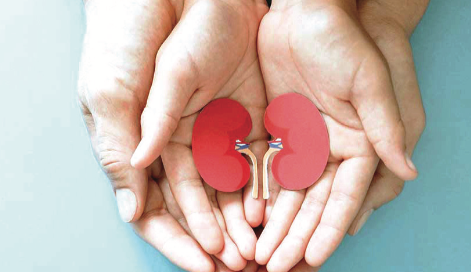Illegal organ trade: Inside Africa’s kidney black market
By People.Reporter, July 6, 2022In 2021, Marriet Achieng from Kipsongo slums in Kitale town, who scored 404 marks at Chetoto Primary School shocked many when she opted to sell one of her kidneys to finance her secondary school education. The 15-year-old girl said her mother was a hairdresser who could not afford to raise school fees to enable her join St Mary’s Girls High School, Bomet.
Asked how she could sell her organ, the girl said she was ready to look for a buyer and that she was willing to go through the surgical procedure to see her kidney removed.
“I’m not worried about the procedure of removing it. My interest is to see that I get my secondary education school fees,” she added.
Achieng’s story is not unique considering the number of people who have come out to “sell” their kidney to raise money during difficult times including famous Kiswahili news anchor Swaleh Mdoe. Every year, especially after the release of national examination results, social media gets filled with “kidney for sale” posts from candidates who are unable to raise school fees for their next level of education. It has, however, never reached a point where the students actually sell their kidney as well-wishers come to their aid.
Coincidentally, queries of how much one could get from selling a kidney has been the most asked question to one of Kenya’s biggest hospitals, Kenyatta National hospital (KNH). In a social media post by the hospital a week ago, KNH said, “How much for my kidney” tops the list as the most asked question in their Facebook platform despite the fact that selling of organs is illegal.
“Please note that organ sale is strictly prohibited and illegal. You can donate out of free will,” said KNH.
Law criminalises organ trade
Health Act 2017 directs organ donations be done out of free will and those in breach face a fine not exceeding Sh10 million or imprisonment for a period not exceeding 10 years or both. The law only allows people to donate their organs to an institution for research or a needy person once they die and this declaration must be in a written form.
Criminal counsel Jared Magolo says the prohibition of selling of organs protects Kenyans from possible trafficking of persons for organ harvesting purposes. He shares how the law further prohibits harvesting of body tissues from a dead body and if it is for toxicology purposes, the harvest of small quantities of tissues must be sanctioned by the family through a court order. He says with the number of people listed for organ transplant in various hospitals across Kenya, the country would have been at risk of killings for organ harvesting purposes. “Can you imagine what would have happened to immigrants who are normally found locked in houses and being ferried to other countries through Kenya or even prisoners. We would just be picking bodies everywhere,” he says.
But despite the selling of body organs being illegal, the same still happens with previous reports showing 10 per cent of organ trade happens in the black market. The criminal lawyers says it is likely that the illegal trade happens in Kenya considering the numerous cases of unknown bodies recovered with missing body parts.
A doctor who sought anonymity says willing selling of organs is alive in Kenya, especially among desperate upper and middle class families with ailing relatives. “Depending on the desperation of a family, a kidney might cost between Sh500,000 to Sh2 million,” he says
The doctor adds that most of the time, the agreement is between the seller and patient’s family and will come to the hospital as a relative willing to donate for their kin. “As a doctor, you cannot start asking questions on the relations between the donor and patient as long as they match and it’s a willing donor, “he says.
According to the Kenya Renal Association, transplantation must come from a blood relative due to compatibility. Transplant from spouses or partners and close friends is also common though not genetically related.
Africa’s organ trade blackspot
Despite majority of African countries illegalising harvesting of body organs, the continent continues to be an epicentre of human trafficking for organ harvesting purposes. A 2021 report by Interpol showed North and West Africa to be the leading source market for the illegal trade due to impoverished communities and displaced populations being at greater risk of exploitation.
The report shows the human trafficking syndicates involved in organ trafficking in these regions have connections to the medical sector in countries from Africa and beyond, notably in Asia and the Middle East, with probable links on transplant tourism, where a patient travels abroad to buy an organ for illegal transplant or transplants performed in North Africa with organs illegally sourced in the region, or transplants done elsewhere with illegally sourced organs.
Organised criminal groups coerce the unemployed, migrants, asylum seekers and refugees into selling an organ with promises of job opportunities abroad, as well as use of threats and violence.
Just last week, a Nigerian senator and his wife were arrested in London and charged with trafficking a 15-year-old boy for the purpose of harvesting organs for their sick daughter. Senator Ike Ekweremadu, and his wife, Beatrice Nwanneka were accused of conspiring to transport a child to the United Kingdom (UK) for a kidney harvesting, with prosecutors claiming the child was coerced into donating one of his kidneys to the politician’s daughter.
